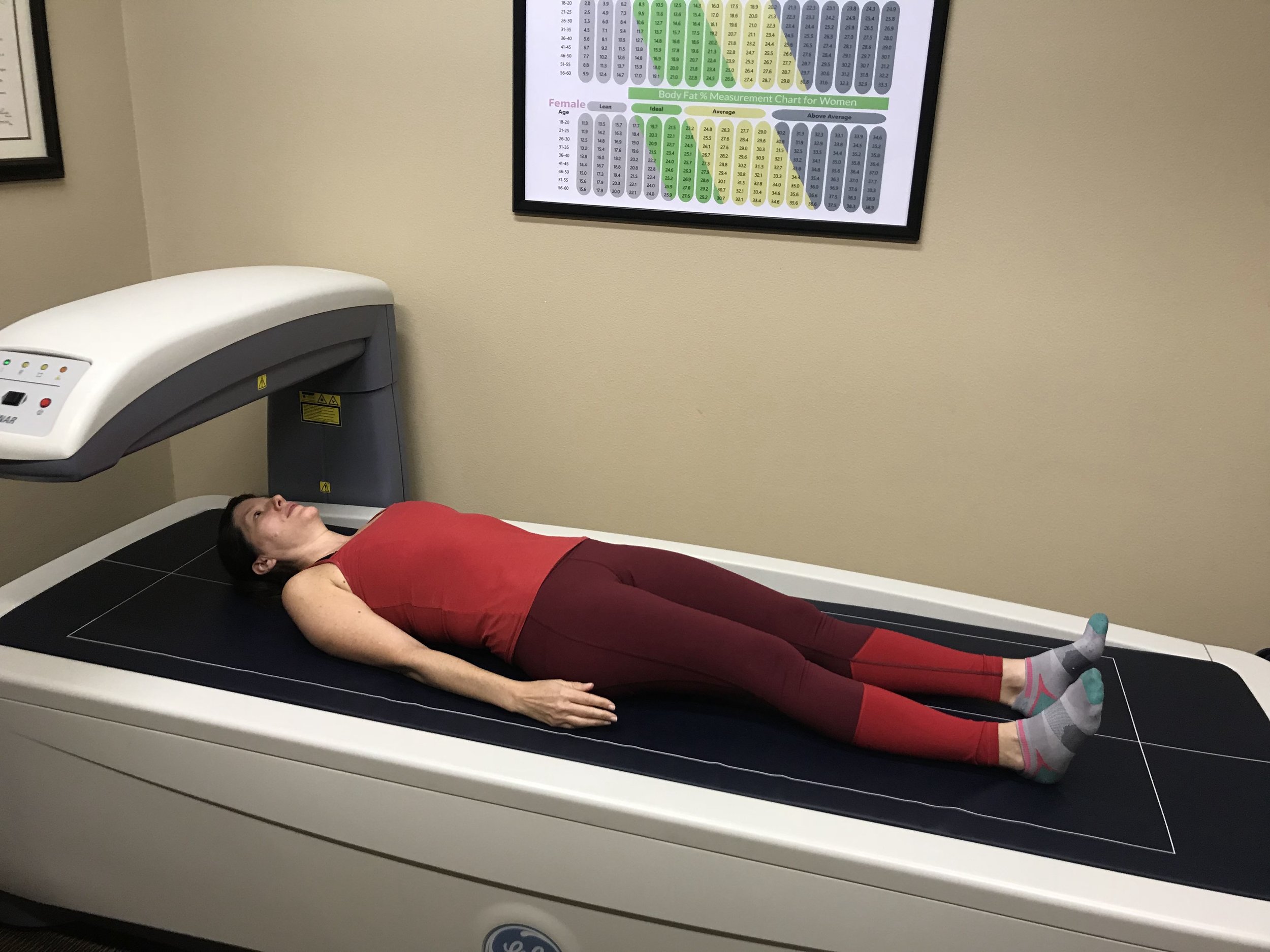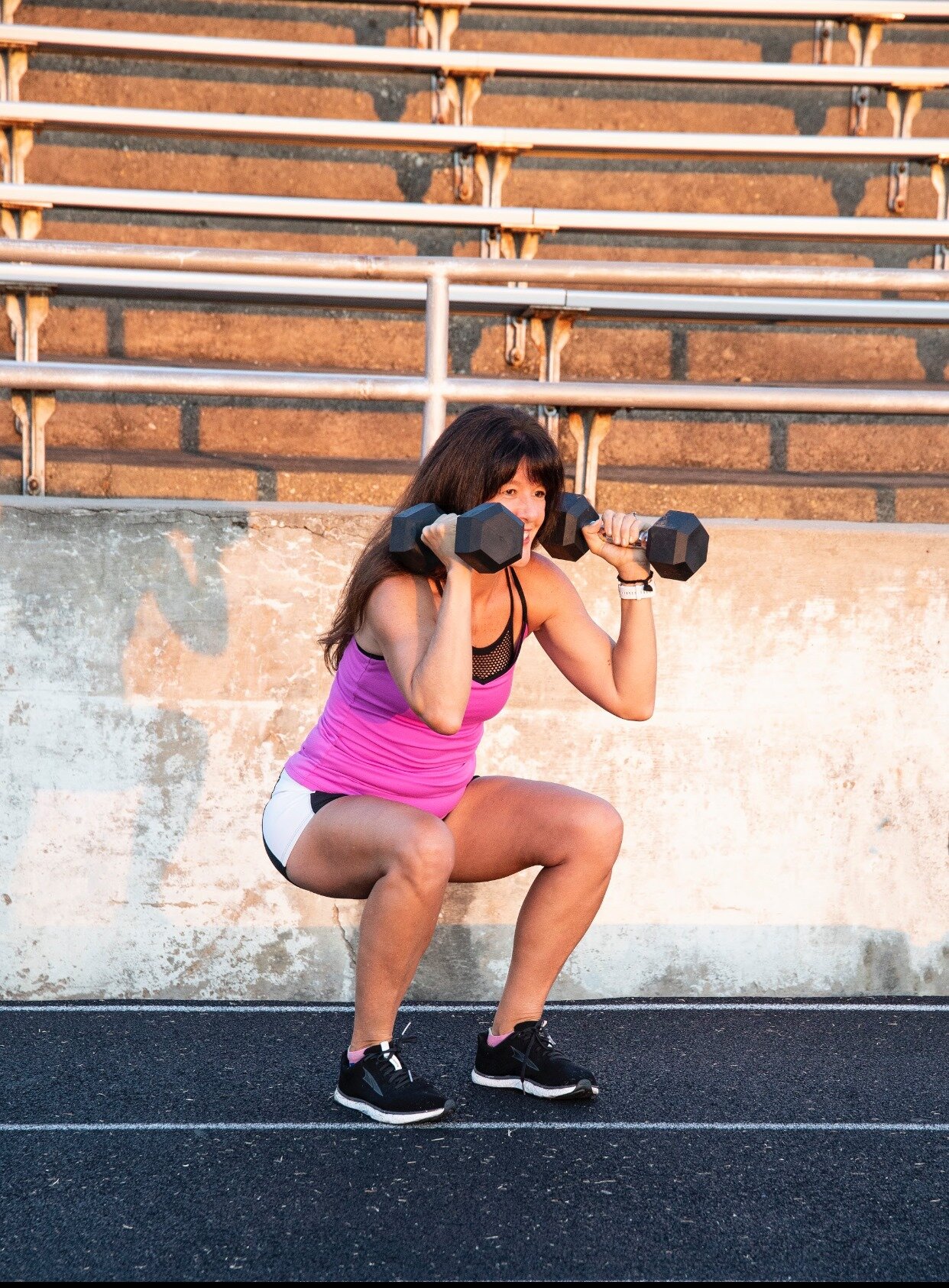Do you own a bathroom scale? I thought so. Go get it.
I’ll wait.
Got it? Great. Now toss it out the window (make sure the window is open first).
Many people put so much weight (pun intended) on the number that flashes back at them from the scale. They have this idea of what it should be or what it used to be, but the bathroom scale doesn’t tell the whole story, and it often tells an inaccurate one. If you rely solely on the scale numbers to measure progress than you could be sabotaging your results.
You see, weight loss on the scale is not always a positive outcome, and an increase in number on the scale is not always an unwanted result. You have to dig deeper into the numbers to know.
I stepped on the scale this morning, and it flashed 140. That’s five pounds up from my “ideal” weight (whatever that means)— no big deal. I’m good with it. I am usually a little leaner in the summer when I’ll easily sweat off five pounds in the Texas heat.
When I told my husband about it, he reminded me of a time in my late 20s, long before fitness was a priority (or even a thought) in my life. I plunged a quarter into one of those scales at the mall (after not weighing myself for years) and burst into tears when the print out revealed that I weighed 145.
Funny how perspectives change. The truth is 145 pounds seemed like a lot to me back then, but I was only looking at the numbers comparing to what I used to weigh.
I have a higher level of fitness at 44 than I had at 24. 140 pounds today appears leaner than my 145 of my 20s because I carry more muscle, and therefore have an improved body composition. My scale weight no longer throws me into a fit of tears, even though it was similar to that day in the mall twenty years ago.
WHY THE SCALE DOESN’T MATTER
Muscle and fat weigh the same, of course. One pound of muscle equals one pound of fat. However, muscle tissue is denser and therefore takes up less space in the body. The more muscle you carry, the leaner your body looks, despite what the scale says. Remember what I said about an increase in scale weight is not always unwanted? Gaining muscle is good.
The scale gives you your total weight: muscle, fat, water, bones, organs, and so on, but bodyweight can change based on factors that have nothing to do with fat loss or gain.
If you stop drinking water (don’t do that, you’ll die) your scale may show a lower weight, but that isn’t fat loss, it’s water loss.
If you stop eating carbs, your body will lose water and the number on the scale will go down, but again, at least initially, it’s water loss, not fat loss.
Once as I was running past a neighbor’s house, she yelled out at me in jest, “Lea, if you want to lose any more weight, you’re just gonna have to cut off your hair.” I could probably lose two pounds with a pixie cut (hah), but that’s not the kind of weight I want to lose. I don’t want to lose weight; I want to decrease the percentage of fat in my body and increase the percentage of muscle.
Then there’s muscle loss.
If you lose muscle along with fat while losing weight, your scale weight might be lower, but you’ll decrease your metabolic rate and your chance of regaining the weight increases. The result is yo-yo dieting: You lose muscle with fat, which results in a lower metabolism, then weight (fat) is quickly gained back due to lowered calorie needs, but now body composition is worse than when you started with more fat and less muscle.
If you carry a higher percentage of muscle, then your scale weight may be higher, but your pants size will be smaller. We don’t don’t want to lose weight; we want to lose fat and preserve (or build) muscle to improve our body composition.
When Dexa contacted me to try out a Dexa scan in Fort Worth in exchange for a blog post about my experience, I jumped at the opportunity.
5 Ways To Use a Dexa Scan to Focus on Fat Loss not Weight Loss For Permanent Results.
LEARN YOUR BODY COMPOSITION
If you want to lose fat, it helps to know how much fat you currently carry first, then set a goal to decrease it.
I visited LiveLeanRX in Fort Worth and got a baseline Dexa body composition scan. Dexa is considered the gold standard, the most accurate, of all the body composition methods.
Dexa uses a low energy X-ray to measure the amount of fat, muscle, and bone in the body. The technician warned me that if I have ever used another method of body fat composition, that those tests aren’t as accurate and usually skew the results lower, up to 10% lower, than actual.
I lied face-up perfectly still on a table while the scanner moved over my body. I wore my regular clothes, and removed my shoes and jewelry (although I forgot to remove my wedding ring). The whole process took about five minutes.
Dexa body composition scan in Fort Worth
When I got the results immediately after the scan, my body fat percentage was a little higher than I assumed (and last time I tested with another method). Now that I have the facts, I can use the data to make informed changes to my diet and training to lower my body fat percentage.
The Dexa scan also tested for Visceral Adipose Tissue. Elevated visceral fat puts you at higher risk for metabolic diseases. It’s helpful to monitor to ensure you are staying within a healthy range.
EAT PROTEIN TO PRESERVE MUSCLE MASS WHILE LOSING WEIGHT
One way to preserve muscle mass while losing fat is to eat adequate amounts of protein, and a great question is how much protein do I need?
The Dexa scan reported that I have 87.2 lbs of lean tissue (muscle) on my body. The recommendation is to eat between one to one and a half ounces of protein every day for every pound of lean tissue. I should aim for 87 to 130 grams of protein per day to preserve lean tissue and support muscle growth.
PERFORM RESISTANCE TRAINING EXERCISES
Preserve muscle while losing fat by performing resistance training exercises. Muscle tissue burns more calories at rest than fat. We want to keep our muscle.
You don’t need to spend hours every day in the gym, but dedicate time to whole-body strength training at least a couple times of week with weights heavy enough to challenge you to aid your fat loss efforts.
Choose compound exercises that work out several large muscle groups at once (think squats, deadlifts, lunges, pushups) rather than isolation exercises (bicep curls, calf raises, tricep extensions) for best results with limited time.
WORK TOWARDS SYMMETRY
The Dexa scan also reported on muscle mass balance. It looks at muscle symmetry between the left and right side. I had less than one percent more muscle on my right side, but this data can be helpful if there are imbalances, which can lead to injuries. If you find you have strength imbalances from the right to left side, you can do unilateral (one-sided) exercises to rebuild strength on the weaker side.
PAY ATTENTION TO BONE DENSITY
I also got a bone density report with my Dexa scan that showed my bone density was above average for women my age. A loss in bone density can be a risk for osteoporosis and helpful to monitor as we age.
REDUCE CALORIES, BUT NOT TOO MUCH
To lose fat, you must eat in a calorie deficit—consume fewer calories than you burn in a day. There might be a temptation to drastically cut calories: “If cutting 500 calories will help me lose a pound in a week, then cutting 2000 will help me lose four!” It doesn’t work that way for most people, just like you can’t bake a cake faster by turning up the heat in the oven.
If you cut too many calories, you risk, again, losing muscle with fat. A slow and steady weight loss of one to pounds per week is healthy and sustainable for most people.
LiveLeanRX Fort Worth also offers resting metabolic rate assessment so you can learn the precise number of calories your body burns at rest.
TRACK YOUR RESULTS
My first Dexa scan was my baseline test. I will spend the next twelve weeks working to improve my body composition using the methods I outlined in this post. I will retest in three months to assess my progress and adjust my training and nutrition as needed based on the results. Sure, I will probably step on a scale once in a while but I won’t put too much energy into those numbers, they simply don’t matter.
If you’ve been crying over the scale or frustrated with your results, a Dexa body composition scan can help you dig deeper into the numbers to learn what actions you can take to improve your body composition, not just lose weight.
Keeping the big picture in perspective is essential. Forget the scale when you're assessing your results. Body composition results do not reflect on the scale. Instead, use a Dexa scan, how your clothing fits, or your body measurements to track your progress.
Did you like this post? Do you know someone who might benefit? It helps me when you share my blog posts with your friends and followers.












Runners who strength train are stronger, faster, and less injury-prone! While focusing on runner-specific exercises, I’ll show you the benefits of resistance training with one piece of equipment—a kettlebell. This program is five weeks of progressive workouts that take about thirty minutes each, two to three times per week.